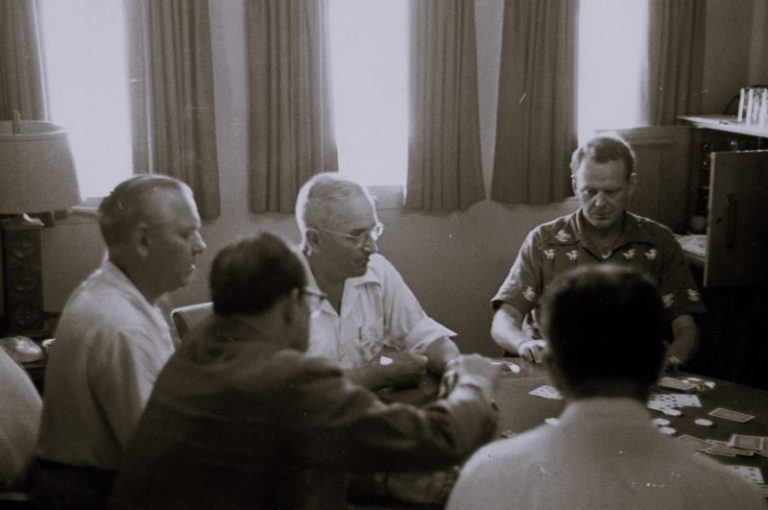

Have you ever noticed how the rush from a video game’s loot box might be similar to that of a coin dropping in a casino or a last-minute goal awarding you a winning sports betting slip? These virtual treasure packs, hidden away in our favorite virtual worlds, are like a sneaky nod from Lady Luck incarnate. The problem is that they can unintentionally open up the gate to gambling behaviors and tie a pixelated ribbon around risk.
Let’s take some time to stroll through this contentious subject, shall we? Are those flashy in-game prizes really enjoyable, or are we unintentionally teetering precariously on the edge of the gambler’s fallacy in gaming?
Unpacking the Virtual “Pandora’s Box”
Let’s now explore this virtual “Pandora’s box” that may (or may not) cause an addiction to gambling. Imagine yourself relaxing with your favorite video game when all of a sudden, you’re presented with the opportunity to obtain special tools or skills. A simple tap and a small amount of real money are all that’s needed to open a loot box full with mystery riches. It sounds like fun, nothing too serious. Just a hint of thrill to add some flavor to your gaming.
Hold on, though—this is where things get sticky. Your brain is excited and marinates in dopamine every time you trade cash for that glittering enigma package. Dopamine is the same chemical that makes you feel good when you play slots or roulette.
Are we instilling in our trigger fingers the belief that winning equals spending? This could be preparing gamers for the kind of edge-of-your-seat excitement that casinos and bookmakers are known for making millions off for years. It’s not simply a funny sideshow. It should come as no surprise that loot boxes are prohibited or subject to strict regulations in several nations as a result.
The Explanation of Loot Boxes
What are they?
You can purchase loot boxes with in-game money, and they’ll provide you a variety of online playable character outfits, skins, equipment, and weapons. The drawback? The contents of the box will remain a mystery to you until you make payment as these incentives are entirely random. Do you wish to give your Fortnite character that stylish outfit? It appears that you’ll need to open a few more boxes unless you’d prefer to purchase the item individually with actual money.
Loot boxes are a real game of chance, but for many players, it’s all worthwhile when they eventually obtain the prize they’ve been waiting for, and they get to brag about it when they play against other players later. Because there’s less chance of finding rarer products while opening loot boxes, players and kids are encouraged to keep buying them until they receive what they desire. The majority of games provide an instant option for the player to return to the shop and purchase another loot box after they have been opened, making the purchases quite convenient.
The Game Screen with Gambling Beyond
You’d probably study reviews online before entering a physical casino to make sure you enter through the opulent doors with wide eyes. The same goes to gambling on the Internet – reading reviews will help you choose a platform that suits your needs best or you can find a site, such as Bookmaker-Expert.com, to do the “dirty” work for you.
Understanding the game’s rules and the odds against you is crucial. It’s important to exercise caution when navigating the world of video games, especially with their glistening treasure packs. It pays to read professional reviews and educate yourself on what’s contained in these digital grabbing bundles before hitting “BUY”.
Let’s be clear about where we draw that line: it’s a good idea to know how loot box games work so there won’t be any unpleasant surprises or ugly curveballs. It wouldn’t be appropriate for a slot machine to appear out of nowhere in the living-room, so why take a chance with unknown digital incentives?
Reviews can shed light on game mechanics and show whether our hankering after virtual items is becoming compulsive rather than recreational. This is a warning sign that should be taken into consideration before continuing on with our digital adventures.
The Covert Art of Hazard: The Walk a Fine Line of a Gamer
A strong sense of balance is necessary to walk the narrow path between enjoying recreational gaming and the edge of addiction. It’s about realizing the power of “just one more” and how it can quickly turn from a harmless pursuit of that legendary skin to an obsessive quest akin to heavyweight gambling. You’re faced with a choice when playing any game that has loot boxes: enjoyment or possible danger.
This is where having a true inner compass is essential. By establishing boundaries before the virtual coins start to fall and drawing distinct lines in the virtual sand, players may achieve that vital balance. Consider it similar to overindulging in your favorite dessert: it’s fine in proportion, but too much of anything causes stomach pain.
Being a clever player involves more than just using strategy in the game; it also involves planning your interactions with it. Be extremely mindful of the point at which innocent enjoyment turns into pressure to indulge in “just one more” unpacking and consider if the excitement is truly worth it.
The Loot Box Issue
When players start using real money to buy these loot boxes with in-game currency, that’s when the problem arises. Since it’s usually difficult to obtain these in-game currency, a lot of users end up buying these randomly selected virtual cosmetics with real money. In summary, especially for younger players, loot boxes promote compulsive behavior that can develop into a gambling habit. Loot boxes are now officially recognized by the Australian Government as a “harmful” component of gaming that fits into the psychological concept of gambling.
Most worrisomely, there’s very no regulation surrounding loot boxes, which has made the idea broadly available to kids and teenagers. A 19-year-old gamer who goes by the pseudonym u/Kensgold claimed on Reddit back in 2017 that he ended up developing a real-life gambling addiction after spending over $10,000 on loot boxes. It’s possible that a lot of younger players will be duped by this contentious feature in online games. Studies on the relationship between loot boxes and gambling have also revealed a strong association, which has prompted further research into the matter.
Some European nations have started to voice their opposition to the topic, even as the Australian government continues to look into loot boxes. A declaration endorsing the regulation of these gambling simulators has been signed by more than 15 EU nations. In order to control treasure boxes in iPhone games and apps, Apple has also taken action. In an effort to better inform customers, Apple has updated their Apple Store Review Guidelines to include the following: “Apps offering loot boxes or other mechanisms that provide randomised virtual items for purchase must disclose the odds of receiving each type of item to customers prior to purchase”. This doesn’t take away from the ease with which loot box purchases can be made, though.
Hanging by a Thread: A Control Challenge
Before entering the dragon’s den that loot boxes and potential gambling addictions could resemble, preparation is essential, just like in any mission. This entails arming oneself with knowledge and self-awareness rather than legendary weapons. Friends, be warned—this terrain is treacherous. Even the most resilient hero can be caught off guard when they tumble down this hill more quickly than they expect.
So how does one maintain dominance over this beast? It all boils down to creating a personal map that indicates when and how much you should play, as well as when to stop before slipping into the dangerous territory of addiction.
This requires strategic foresight, not just willpower. Understand the mechanics underlying the dazzling pixels that promise adrenaline-pumping good fortune to become your own protector.
Remember that underlying those enticing loot box mechanics is an encounter in which control is the player’s most powerful tool and chance rules supreme. Face these technological mysteries not as jackpot-obsessed gamblers but as players with the knowledge and self-control to keep every virtual dice roll within the parameters of safe entertainment.
Action and Advocacy: The Power of the Community
You’ve charted your own territory, which is rather good, we assume. But consider this: What if everyone in the community joined forces to do this? Like every community, the rapidly expanding gaming business recognizes the strength of numbers. We’re not just venting when we start talking about gambling addictions, loot boxes, and how they affect behaviors and mental health; we’re influencing the narrative within an industry.
It’s not yelling into empty space when gamers band together to seek restrictions or clarification on loot box odds—this is democracy in action. Sharing stories, advocating for openness, and offering assistance to people who may be having trouble resisting digital temptation are crucial. Social media sites, gaming forums, and even neighborhood gaming clubs have the potential to transform into change-making round tables.
It goes beyond merely talking; it also takes action. For example, game developers may change their direction in response to player criticism or policies may change as knowledge grows. Supporting this cause can seem like a tough fight at first, and it is, but it is one battle in the fight against unrestrained gaming behaviors where the combined voices of people can really make a difference. Thus, while maintaining individual awareness is crucial, keep in mind that unity brings power and advancement.
Summing Up
So, as we turn off our gaming systems and return to the real world, have we made any notes? It involves purposefully navigating our path while keeping an open mind to the allure of treasure troves and compulsive gambling. Is the game going to play you or will you play it? That’s something to think about.


